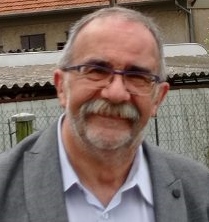Social and territorial cohesion in the Greater Region (2021)
7th Forum Greater Region
4th November 2021, 1:00-5:00 PM online (Zoom)
The Greater Region is a historically grown area with more than 11 million inhabitants and 250,000 cross-border commuters today. The people living in the cross-border region benefit from numerous interconnections. However, at the same time they are confronted with different everyday life realities as well as different economic realities and political-administrative operation modes. The socio-cultural and socio-economic diversity in this region has become particularly noticeable during the pandemic.
The 7th Forum Greater Region therefore was focused on social and territorial cohesion in the Greater Region and examined the related challenges for inhabitants and actors. These relate to questions of language learning, political strategies of multilingualism or the strengthening of the citizens' sense of belonging to the Greater Region. Furthermore, it is important to raise the awareness of the actors for socio-economic developments in the neighbor regions and their potentials for an integrated spatial development in a participative process. The effects of the Covid-19 pandemic on cross-border commuters and other workers could be partially mitigated with short-time work and telework, but they remain a challenge for social cohesion in the Greater Region.
The guiding perspective of social and territorial cohesion were discussed at the 7th Greater Region Forum along three questions:
- What role do identities and multilingualism play for cross-border cohesion?
- How can cohesion strategies in cross-border spatial planning look like?
- What lessons can be learned from the pandemic for the cross-border labor market
|
Grenzüberschreitende Identitäten in der Großregion? |
L’aménagement transfrontalier et stratégies de cohésion |
|
|
Die Auswirkungen der Pandemie auf den Arbeitsmarkt und die grenzüberschreitende Beschäftigung |
Round Table - Challenges of social and territorial cohesion in the Greater Region |
-
Speakers & Discussants
-

Vincent Hein (Fondation IDEA)
"Economic integration within the Greater Region has not automatically led to better economic, social and environmental cohesion. Against this background, new objectives and tools must be devised for cross-border cooperation policies."

Alexa Himbert (Interregional Employment Observatory)
"Cross-border mobility is a driving force in our region and makes an important contribution to the integration and social and territorial cohesion of the Greater Region."

Jean Salque (Institute of the Greater Region)
"The health crisis has revealed the strong interdependence of the territories in the Greater Region and the limits of the current development model."

Charlotte Schneiders (Future Forum of Young Citizens of the Greater Region)
"The voice of youth must be heard in the development of the Greater Region. Without participation no identification!"

Marie-Josée Vidal (Ministry for Energy and Spatial Development)
"Spatial planning policy at the level of the Greater Region must place the citizen at the heart of its concerns in order to offer him an enhanced quality of life and to provide him with both private and professional fulfilment in a living environment in which the urban and the natural are in symbiosis. This approach takes into consideration the current and future social and environmental challenges: the quest for an optimal quality of life and a rational use of a territory's resources are the keystone of a successful social and territorial cohesion."

Florian Weber (Saarland University)
"The Covid-19 pandemic has shown how closely the Greater Region is already interconnected, while cross-border cooperation remains a major task for the future."

Christian Wille (University of Luxembourg)
"Cross-border Life and Work Worlds Integrate the Other into the Own. Therefore, open borders, mobility and languages are essential for cross-border identities."
-
Program
-
Moderation: Guy Keckhut
1.00-1.30pm | Welcome and introduction
Ministre Claude Turmes (Ministry for Energy and Spatial Development)
Christian Wille (UniGR-Center for Border Studies, University of Luxembourg)1.30-3.00pm | Keynote speeches - Challenges of social and territorial cohesion in the Greater Region
- Les identités (trans-)frontalières dans la Grande Région ?
Christian Wille (UniGR-Center for Border Studies, University of Luxembourg) - L’aménagement transfrontalier et stratégies de cohésion
Marie-Josée Vidal (Ministry for Energy and Spatial Development) - L’impact de la pandémie sur le marché du travail et l’emploi frontalier
Alexa Himbert (Interregional Employment Observatory)
Pause
3.15-4.30pm | Round Table - Challenges of social and territorial cohesion in the Greater Region
- Vincent Hein (Fondation IDEA)
- Jean Salque (Institute of the Greater Region)
- Alexa Himbert (Interregional Employment Observatory)
- Charlotte Schneiders (Future Forum of Young Citizens of the Greater Region)
- Marie-Josée Vidal (Ministry for Energy and Spatial Development)
- Florian Weber (UniGR-Center for Border Studies, Saarland University)
4.30-4.55pm | Discussion with the public
Closing words
Christian Wille (UniGR-Center for Border Studies, University of Luxembourg)
- Les identités (trans-)frontalières dans la Grande Région ?
Poster available in German and French
Brief report (German and French)
- German - Christian Wille: Sozialer und territorialer Zusammenhalt in der Großregion. Kurzbericht zum 7. Forum Großregion. UniGR-Center for Border Studies. Download
- French - Christian Wille : Cohésion sociale et territoriale dans la Grande Région. Rapport Synthétique du 7e Forum Grande Région. UniGR-Center for Border Studies. Télécharger
The 7th Greater Region Forum was a side event of the European Week of Regions and Cities 2021.
More information here
An event organized by the UniGR-Center for Border Studies (Interreg VA Greater Region) in cooperation with the Institute of the Greater Region, the Interregional Employment Observatory and the Luxembourg Ministry for Energy and Spatial Development.
Contact

